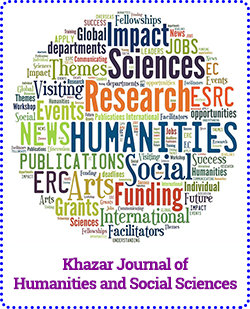Neo-Orientalism or Neo-Imperialism? Islamism in a Globalized World: Prayers for the Assassin as a Case Study of Contemporary American Novel
DOI:
https://doi.org/10.5782/2223-2621.2020.23.3.86Keywords:
American novel, Islamists, woman, Islamic Republic of AmericaAbstract
This paper deals with some aspects of neo-orientalism in the modern American novel highlighted in much conventional political and literary studies and conceptualized both as a composite of cultural studies and a western ideology. When applied to the post 9/11 American novel analysis, neo-orientalism uses terrorism as a significant aspect of a much broader reaction to Islamists' threats living in the United States and Europe. It is common in neo-orientalist discourse about extremism to refer to Islamism as a threat to nations and therefore, it is important to find how the American novel represents the Muslims and how vigorously acts with the state in its fight against terror. This paper focuses on contemporary issues on Arabs represented in Robert Ferrigno's Prayers for the Assassin (2006), such as extremism, women's rights, hostility, and identity, common themes in post 9/11 novel on the Muslims. Moreover, this study attempts to answer two questions: Has there been a change in the representation of Muslims in the American novel after nineteen years from 9/11, and has American media coverage affected the representation of the Muslims in the novel? In the analysis of Prayers for the Assassin, Muslim characters are victimers and victimized at the same time; they live out the contradiction of being victims of post 9/11 anti-Muslim representations and being arrogant and aggressive towards the non-Muslims.
Downloads








